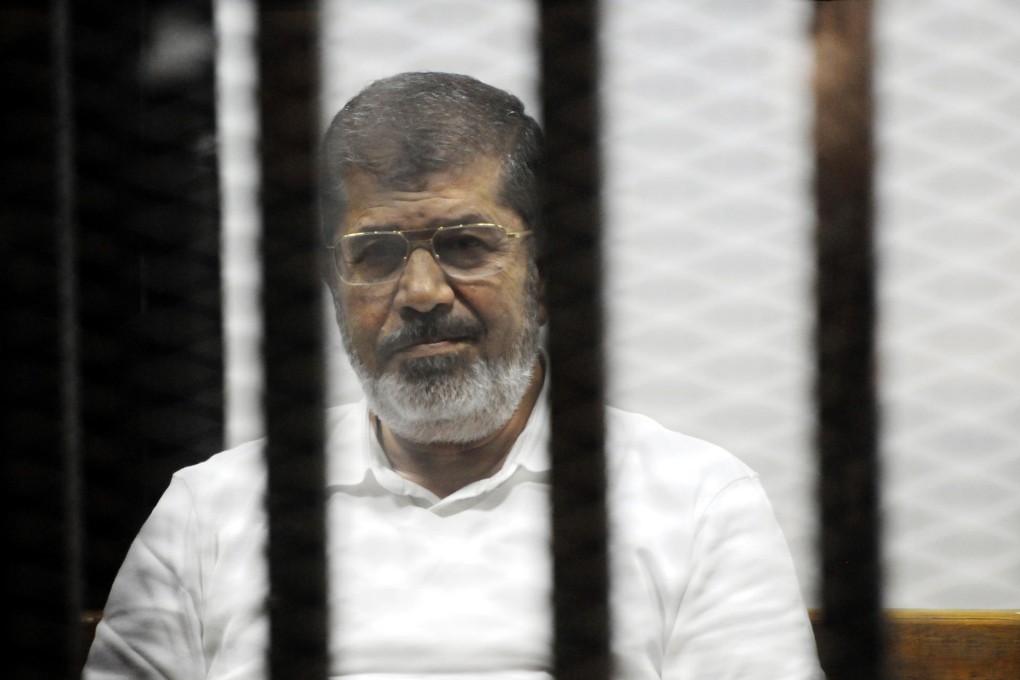Muslim Brotherhood faked tapes of Mursi arrest collusion: prosecutor
Authorities hit back over leaked videos of alleged military collusion in leader's arrest

Egypt's government has denied it fabricated key documents linked to the trial of Mohammed Mursi, the country's ousted president, after a set of unverified leaked recordings seemed to show that senior Egyptian military officials colluded with the country's police chief and top state prosecutor to ensure his trial did not collapse.
Mursi was seized by army officers in July last year and taken to await prosecution at a naval base, an illegal process his lawyers argue invalidated any subsequent court case.
According to the pro-Mursi channel that broadcast the recordings, the leaks show a senior general asking colleagues to retrospectively legalise Mursi's arrest by building a fake civilian prison in which the authorities could pretend Mursi had always been interned. If it was proven that Mursi was instead kept in a military compound, the alleged general says, "Mursi will be out in the street tomorrow".
In one recording the general - said to be Mamdouh Shaheen - tells Egypt's navy chief, Osama el-Guindy, to build the fake prison on the edge of the naval base. In a second recording, Shaheen appears to tell police chief Mohamed Ibrahim to create paperwork showing that the construction of the fake prison predated Mursi's arrest. In a third, Shaheen allegedly tells Mursi's successor, former army chief Abdel Fatah al-Sisi, that all has gone to plan.
"Guys, we just have to build a building," the man identified as Shaheen says at one point. "We'll build a building somewhere outside. We will build an entrance and we'll put a fence around it and bring security forces. And we can also bring two security cars and security checkpoints at the right and the back."
Throughout the recordings, Shaheen says he is acting at the request of Egypt's chief prosecutor - Hisham Barakat - who, according to Shaheen, has himself discussed the case with the judge. In his public statements Barakat has often emphasised the independence of the judicial process.